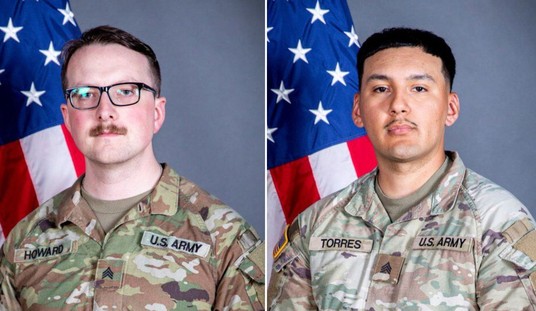Kathleen Soliah’s return to Minnesota this week after serving seven years for murder and terrorism in California has prompted a debate over the quality of forgiveness. Doug Grow at MinnPost took aim at those who demanded that Soliah remain in California for her parole. Noting that relocations in parole are not terribly unusual, Grow took potshots at Governor Tim Pawlenty’s faith for opposing her return:
Sen. Gary Kubly, DFL-Granite Falls, is the one legislator who did not duck the challenge posed by Brod and Pawlenty. He is a Lutheran pastor, and he believes forgiveness must be a consideration for all of us. What he heard when he listened to Brod and the governor was a call for “retribution.”
“It pushed my hot button,” said Kubly of the efforts to prevent Olson from returning home. “She led an exemplary life here [in St. Paul] for 20 years. This is where her family is. She’s paid her debt to society … We get into making all sorts of judgments. This person deserves forgiveness. This person doesn’t deserve. The truth is, we all need it.”
Kubly admits, with a smile, to being perplexed by the theology of Pawlenty, a regular church attender.
“I felt like if his church is supporting his position on this, then, he ought to find one that doesn’t,” said Kubly.
I guess Kubly missed that part of the Bible where Jesus warns others not to judge the status of another’s faith. Maybe it’s Kubly that should find another church, or stick to matters of public affairs. Grow never bothers to challenge that notion in his column, mostly because it fits within his view of the Soliah case, and it makes a nice and totally irrelevant billy club. Parole isn’t a religious experience, and Minnesota shouldn’t be on the hook for monitoring Soliah — who hid out in Minnesota for more than 20 years from murder and terrorism charges. Grow never uses the word “murder” once in his column in connection with Soliah.
Eric Ostermeier at the University of Minnesota’s Smart Politics blasts Grow in response:
While Grow subtly excuses Olson/Soliah’s association with the SLA as occurring, “During those turbulent times in the nation,” one might think she was just a young lost soul, searching for political idealism in a disorderly world. But this was not the Summer of Love. And Olson/Soliah was not a teenager when she committed these crimes. In fact, she was not 20 years old. Or 22. Or 25. In April 1975, at the time of the deadly Crocker National Bank robbery, Olson/Soliah was more than 28 years old.
Finally, Grow’s attempt to conflate Olson/Soliah with every other ‘ordinary’ criminal that gets paroled, falls flat due to that one tricky part of her personal history – the 24 years she spent as a fugitive from justice. Olson/Soliah, you see, was able to profit during her life as a fugitive under her new identity of Sara Jane Olson. By escaping justice for 24 years, she built a family and the trust and love of her community – something she may never have enjoyed had she been captured prior to leading this double-life. …
In calling on Minnesotans to forgive Olson/Soliah, Grow’s column displays the height of arrogance in its suggestion that it is the obligation or moral duty of the State of Minnesota, its elected leaders, or its residents, to not simply exercise this power of forgiveness in the Olson/Soliah case, but to suggest they even possess the right or power to forgive her in the first instance.
For it is only the victims of Olson/Soliah’s criminal activity who truly have the power to forgive her, not warm-hearted Minnesotans or columnists like Doug Grow, and Grow made no reference in his article to the views held by the LAPD or the Opsahl family on her parole (or of any attempt by him to contact them).
Read both articles in full; they’re lengthy, and excerpting doesn’t capture the breadth or skilled writing of either.
As Eric points out, parole isn’t about “forgiveness”. Even if it was, Minnesotans didn’t get victimized by the SLA and Soliah; Californians did. Her parole is designed to get her out of prison early in a supervised environment, and California should be responsible for providing that supervision if they want her out of prison. Passing her off to Minnesota is a cheap way out for the Golden State. If they didn’t want to supervise her parole, they should have left her in prison.
But there’s another, more basic problem with Grow’s argument. Eric points out that Soliah was no ordinary criminal, but misses how she’s exceptional. Soliah and her revolutionary ilk tried foisting political change through violence, terrorism, and intimidation. It attacked the very heart of our self-governing democratic republic. The SLA and other terrorist groups of the time (including Bill Ayers and the Weather Underground) knew that their radical politics put them on the fringe of thought, and that they couldn’t hope to convince people to follow them. Instead, they attacked our institutions and threatened war on the state of California and the US. They advocated the violent overthrow of the US, and made several attempts at it, murdering a bank teller in the process and only missing out on murdering police officers through their own incompetence.
They were no better than al-Qaeda then, and they’re no better than al-Qaeda now.
Soliah should have been locked up for life. The only remorse she’s shown is her sorrow over getting caught. She doesn’t belong in Minnesota, or for that matter, in California either, except behind bars. She can seek forgiveness and have it, but forgiveness does not wipe away the temporal consequences of one’s acts … as any Christian church teaches, except apparently Kubly’s and Grow’s.








Join the conversation as a VIP Member